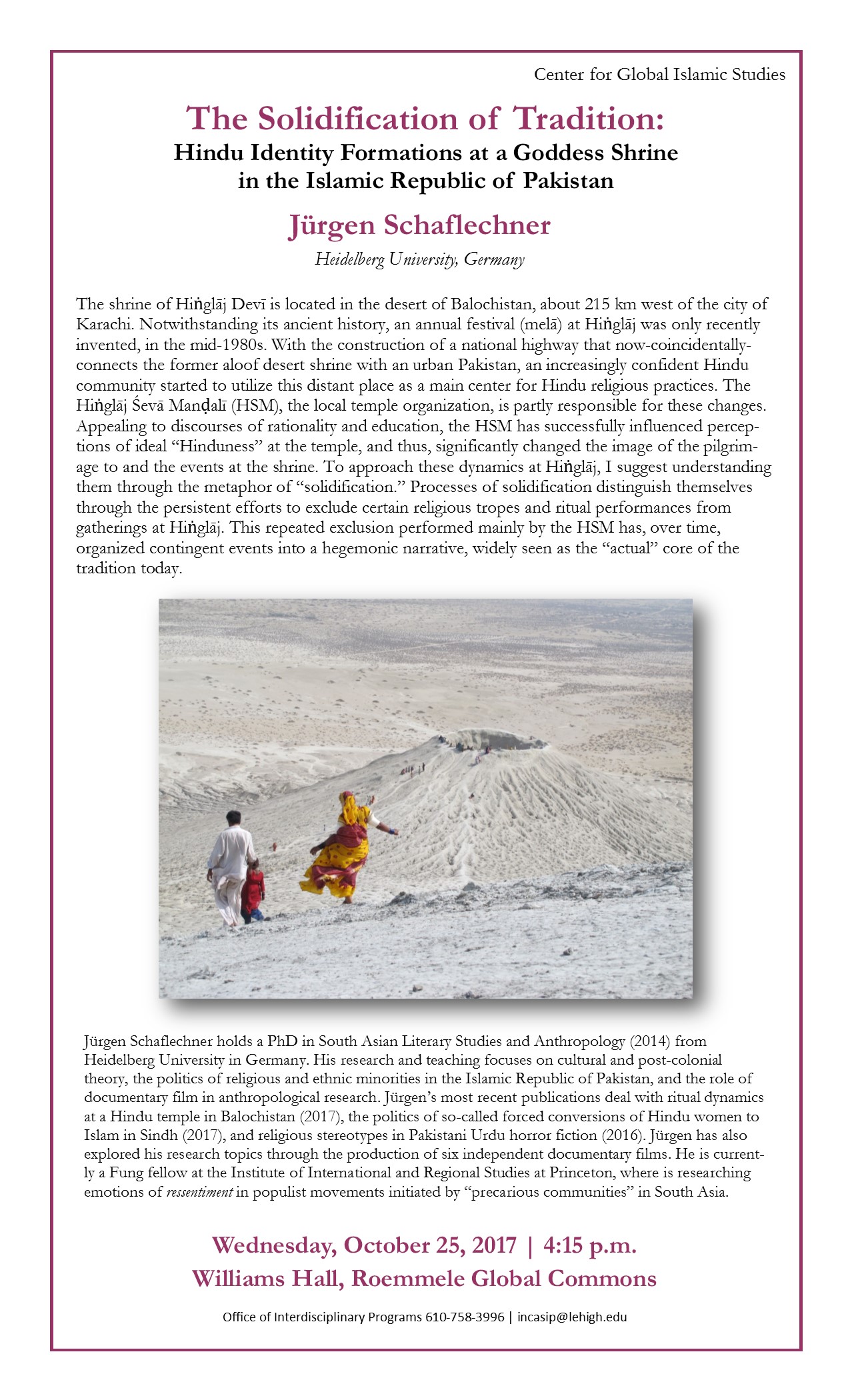Date:
The Solidification of Tradition: Hindu Identity Formations at a Goddess Shrine in the Islamic Republic of Pakistan
Jürgen Schaflechner
Heidelberg University, Germany
The shrine of Hiṅglāj Devī is located in the desert of Balochistan, about 215 km west of the city of Karachi. Notwithstanding its ancient history, an annual festival (melā) at Hiṅglāj was only recently invented, in the mid-1980s. With the construction of a national highway that now-coincidentally-connects the former aloof desert shrine with an urban Pakistan, an increasingly confident Hindu community started to utilize this distant place as a main center for Hindu religious practices. The Hiṅglāj Śevā Manḍalī (HSM), the local temple organization, is partly responsible for these changes. Appealing to discourses of rationality and education, the HSM has successfully influenced perceptions of ideal “Hinduness” at the temple, and thus, significantly changed the image of the pilgrimage to and the events at the shrine. To approach these dynamics at Hiṅglāj, I suggest understanding them through the metaphor of “solidification.” Processes of solidification distinguish themselves through the persistent efforts to exclude certain religious tropes and ritual performances from gatherings at Hiṅglāj. This repeated exclusion performed mainly by the HSM has, over time, organized contingent events into a hegemonic narrative, widely seen as the “actual” core of the tradition today.
Jürgen Schaflechner holds a PhD in South Asian Literary Studies and Anthropology (2014) from Heidelberg University in Germany. His research and teaching focuses on cultural and post-colonial theory, the politics of religious and ethnic minorities in the Islamic Republic of Pakistan, and the role of documentary film in anthropological research. Jürgen’s most recent publications deal with ritual dynamics at a Hindu temple in Balochistan (2017), the politics of so-called forced conversions of Hindu women to Islam in Sindh (2017), and religious stereotypes in Pakistani Urdu horror fiction (2016). Jürgen has also explored his research topics through the production of six independent documentary films. He is currently a Fung fellow at the Institute of International and Regional Studies at Princeton, where is researching emotions of ressentiment in populist movements initiated by “precarious communities” in South Asia.

